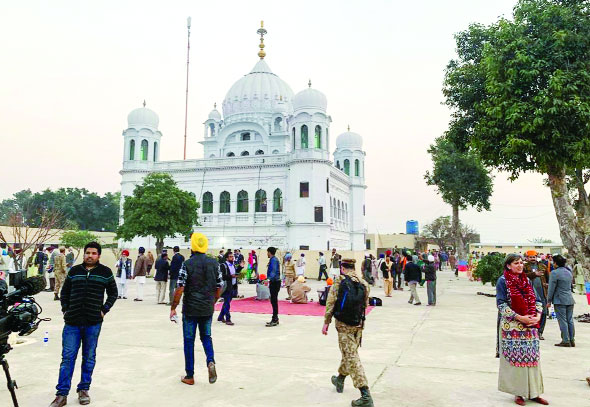Kartarpur and Kashmir don’t mix; India is right in calling out Puraana Pakistan under Imran Khan
Pakistan Prime Minister Imran Khan famously said on coming to power that he would take two steps to one by India in an effort to bring peace between the two south Asian neighbours and work to normalising their troubled relationship. However, much like the title of VI Lenin’s polemic to fellow European revolutionary Rosa Luxemburg in the early years of the 20th century, Pakistan has ended up taking one step forward and taking the bilateral relationship two steps back by its disingenuity. Of course, the opening and promised development of the Kartarpur Corridor, which will make it easy for the devout to make the pilgrimage to one of Sikhism’s most holy sites at Kartarpur Sahib in Pakistan, is a welcome and a positive gesture. Pakistan and its Prime Minister must be commended for acceding to this decades-old demand from the Sikh community on both sides of the border. That said, it should be clear to all that what went down at the ground-breaking ceremony in Kartarpur on Thursday was unedifying in the extreme. Not only did Imran Khan use the occasion to rise the ‘Kashmir dispute’ terming it the ‘hurdle to peace (with India)’, but in doing so he also signalled to the hardline domestic constituency in Pakistan, which includes the Pakistan Army and Intelligence services, that he was very much in tune with the strategy of the deep state in that country. Additionally, the presence of pro-Khalistan extremists at the function, most notably the rabid Gopal Singh Chawla, who was seen mixing freely with Pakistan Army Chief General Qamar Javed Bajwa and has previously been photographed hobnobbing with the Islamist terror mastermind Hafiz Saeed, ensured the optics of the event, despite the nice things, as it were, said by ministers and officials from either side, would be unpalatable for India. Most worrying of all, however, is that the ostensible Kartarpur outreach by Pakistan comes in the wake of a determined, meticulously planned and well-funded effort by Islamabad to revive Sikh militancy around the Khalistan demand in Indian Punjab that included a terrorist attack earlier this month. These are not portents of a Naya Pakistan as promised by Imran Khan but are emblematic of the business-as-usual approach of the Puraana Pakistan. The Indian response to the disingenuity on display articulated by Foreign Minister Sushma Swaraj was a masterclass in a sober, circumspect separation of issues and the iteration of New Delhi’s red lines — the Kartarpur Corridor initiative was appreciated, the Kashmir reference was a ‘deeply regrettable’ effort to politicise a pious event and it was reiterated that there will be no bilateral dialogue till cross-border terrorism ceases and that there was no question of Indian participation in the proposed SAARC meeting in Pakistan.
But could we have avoided this situation coming to pass in the first place? On balance, perhaps not. Mainly, because the nature, motivations and strategic aims of the Pakistani State have remained more or less constant over the decades and the few attempts made by earlier civilian, democratically elected governments to reshape the India discourse in that country have been snuffed out pretty ruthlessly. Given the sub-continent’s shared geography, there are places of pilgrimage important to all communities on either side of the border and a humanitarian approach towards allowing access to them by both sides as a standalone policy would be ideal. Not only would that help lessen the suspicions on either side among citizens but also give a fillip to religious tourism. Realistically, however, that would be too much to expect from a Pakistan that is being too clever by half. India has to therefore deal with what is as opposed to what could be.


























